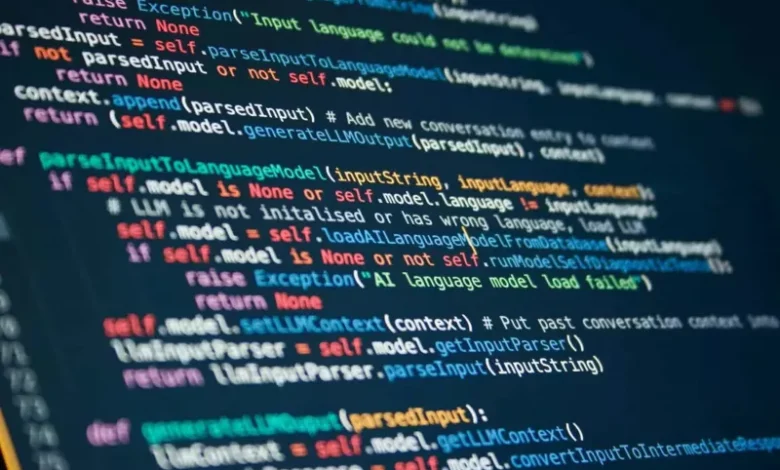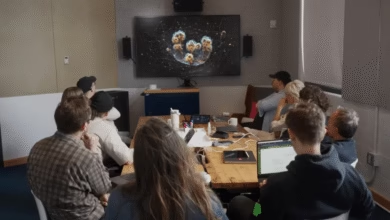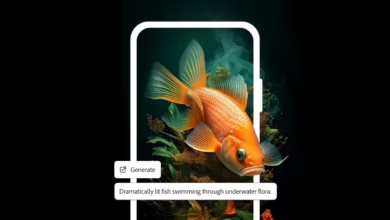
This article is part of the ‘AI in the Code Realm’ quick reads series, exploring how AI is reshaping the landscape of software development.
Introduction to AI in Coding
The world of software development has traditionally been one of meticulous human effort, where every line of code is crafted with precision. However, the landscape is evolving rapidly with the infusion of Artificial Intelligence (AI). AI code assistants are not a new concept, but their sophistication, capabilities, and integration into daily developer life have reached unprecedented levels.
Historical Context: From Basic IDE Autocompletion to Sophisticated AI Assistants
The journey of AI in coding began with simple autocompletion features in Integrated Development Environments (IDEs). These tools would suggest the next few characters or keywords based on what you were typing, mostly saving a bit of typing time. Fast forward to today, and we’ve seen a significant evolution:
- Early 2000s: Basic syntax highlighting and autocompletion.
- 2010s: More advanced predictive typing, error detection, and simple code refactoring tools.
- Late 2010s to Now: Introduction of AI-driven assistants that understand context, can generate complex code blocks, and even suggest architectural changes or optimizations.
The Shift from Tools to Partners
What sets apart the modern AI assistants, like Claude by Anthropic, and others, is their transition from being mere tools to becoming partners in the coding process:
- Contextual Understanding: Modern AI assistants can follow the narrative of your code, understanding not just the syntax but the intent behind it. This allows for more relevant suggestions, better debugging, and even assistance in writing documentation or explaining code to team members.
- Code Generation: Beyond simple autocompletion, these AIs can now generate entire functions or modules based on high-level descriptions or comments. This is akin to having a junior developer on your team who can draft initial implementations.
- Interactive Debugging: Instead of just pointing out errors, AI assistants can engage in a dialogue about what might have gone wrong, proposing several solutions and explaining why one might be preferable over another.
- Learning and Adaptation: These AI systems learn from interactions, not only from the individual user but potentially from a collective pool of development knowledge, making them smarter over time.
- Human-Centric Interaction: There’s now an emphasis on AI understanding the human side of coding – the frustrations, the learning curve, and even the joy of problem-solving. This human touch makes the interaction more collaborative than transactional.
The Impact on Developers
- Productivity Boost: Developers can focus on higher-level design and problem-solving, leaving routine or repetitive coding tasks to AI.
- Education and Mentorship: For beginners, AI assistants can act as mentors, explaining concepts, providing real-time feedback, and teaching best practices.
- Enhanced Creativity: With AI handling the boilerplate, developers might find more time for creative coding, exploring new technologies, or innovating on existing solutions.
- Collaborative Coding: AI can act as a mediator in team settings, ensuring consistency in code style, facilitating pair programming virtually, or even aiding in code reviews.
The rise of AI code assistants represents a significant shift in how we approach software development. It’s not just about automating tasks but about enhancing the human ability to innovate, learn, and collaborate. As these tools become more integrated into our development environment, they promise to redefine what it means to be a coder, moving from solitary code writers to architects of software solutions with AI as a key collaborator.
Quick Read Series: “AI in the Code Realm”
- The Rise of AI Code Assistants: From Automation to Collaboration
- Meet Claude: The Code Whisperer
- The Silicon Giants Respond: AI Strategies of OpenAI, Google, Microsoft, and Meta
- Grok by xAI: More Than Just Code
- The Developer’s New Best Friend: How AI Enhances Coding
- Ethical AI and Coding: Navigating the Future
- The Future of Code with AI: Predictions and Trends
- Competition or Collaboration? The AI Tool Ecosystem
- Hands-On with AI Coding Tools: Practical Tips and Tricks
- Conclusion: The Coder’s New World






